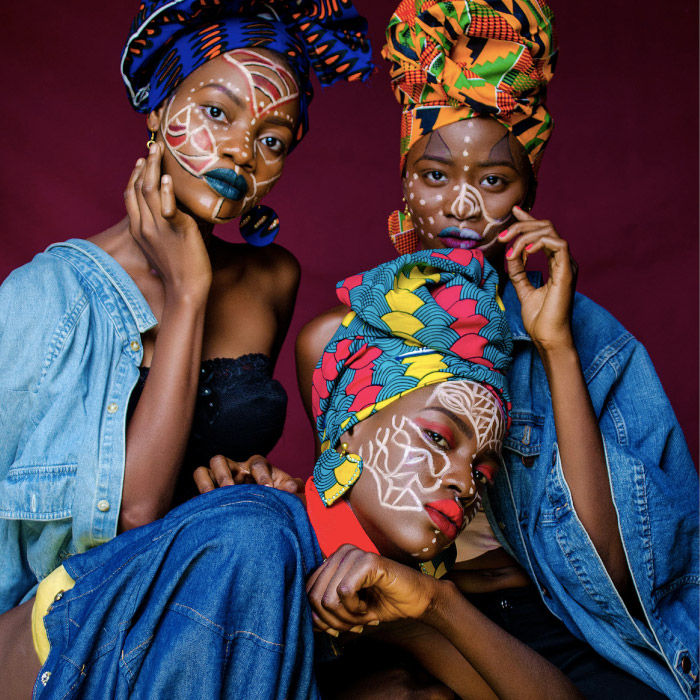
In the vibrant tapestry of global fashion, Africa's presence is increasingly prominent, painting a picture of creativity, innovation, and economic prowess. With a burgeoning youth population, rapid urbanization, and the infusion of digital technologies, the continent's fashion landscape is undergoing a seismic transformation, poised to emerge as a formidable leader in the global fashion arena.

From the bustling streets of Abidjan to the chic boulevards of Nairobi in Kenya, African cities are not only economic hubs but also veritable crucibles of fashion and design innovation. Despite facing challenges such as limited investment, nascent educational systems, and the imperative need for intellectual property protection, Africa's potential to shape the future of fashion remains undeniable.
UNESCO's seminal report, "The African Fashion Sector: Trends, challenges, and opportunities for growth," unveiled in October 2023, illuminates the continent's trajectory towards fashion supremacy. Africa boasts a rich tapestry of raw materials, with 37 out of 54 countries producing cotton, rendering it a significant player in the global textile market. Moreover, the continent serves as both an exporter and importer of textiles, with a trade volume indicative of its burgeoning influence.

A notable trend highlighted in the report is the growing demand for "Made-in-Africa" fashion, particularly among the youth demographic, who account for a significant portion of the continent's population. The burgeoning middle class further fuels this demand, catalyzing the emergence of new consumer markets and amplifying Africa's fashion footprint on the global stage.
The digital revolution sweeping across Africa plays a pivotal role in fostering intra-continental trade and nurturing young talent. With 32 Fashion Weeks held annually, the continent serves as a crucible for haute couture, craftsmanship, and sartorial expression. The report forecasts a staggering 42 percent surge in demand for African haute couture over the next decade, underscoring the continent's rising prominence in the global fashion echelon.

Despite the palpable momentum, UNESCO identifies four critical challenges that necessitate strategic interventions to unleash Africa's fashion potential. The most critical amongst these challenges is the imperative to bolster legal protections for designers and industry professionals, encompassing intellectual property rights, fair remuneration, improved working conditions, and the facilitation of professional unions.
Investment in small and medium-sized enterprises (SMEs) emerges as the second imperative, considering that these enterprises comprise 90 percent of Africa's fashion sector. Beyond their economic significance, SMEs serve as custodians of cultural diversity and are pivotal in fostering local employment opportunities, particularly for the continent's burgeoning youth population.
Addressing environmental sustainability constitutes the third challenge outlined by UNESCO. While the fashion industry remains a significant contributor to environmental degradation, Africa possesses untapped potential to harness local materials, innovate sustainable textiles, and promote eco-conscious consumption patterns. Notably, the production of organic cotton fiber in Africa surged by 90 percent between 2019 and 2020, signaling a burgeoning movement towards sustainability within the continent's fashion landscape.

Moreover, the report underscores the need to establish robust recycling channels to mitigate the environmental impact of the second-hand clothing market, which represents a significant segment of global imports. With 40 percent of discarded garments ending up in landfills, enhancing recycling infrastructure is imperative to foster a circular economy within the fashion industry.
In conclusion, Africa stands at the precipice of a transformative epoch in the global fashion narrative. With its rich cultural heritage, burgeoning talent pool, and excellent, growing consumer base, the continent possesses all the prerequisites to ascend as a world leader in fashion. By surmounting challenges, fostering innovation, and embracing sustainability, Africa's fashion renaissance heralds a new dawn of creativity, inclusivity, and economic prosperity on the global stage.














